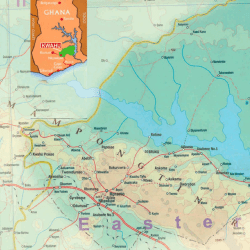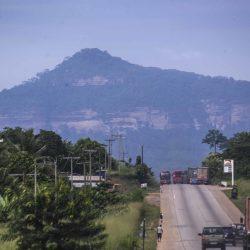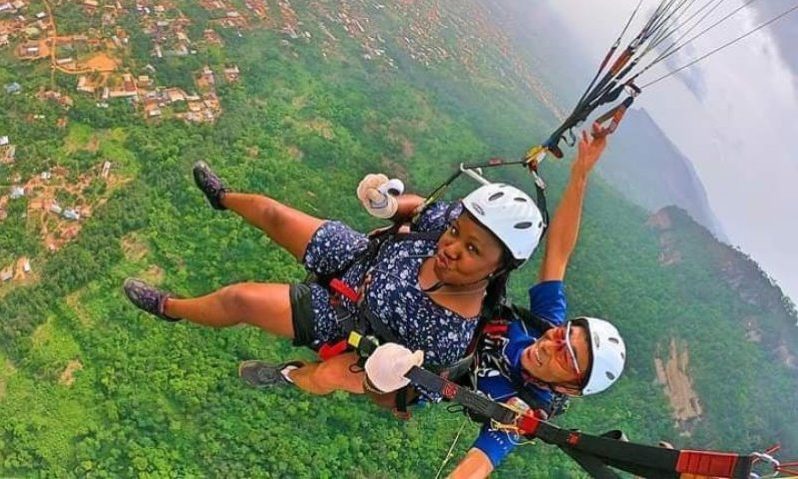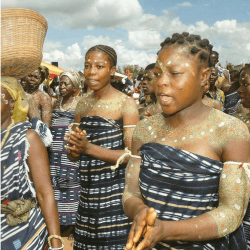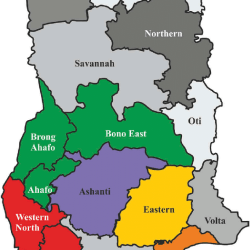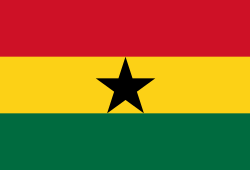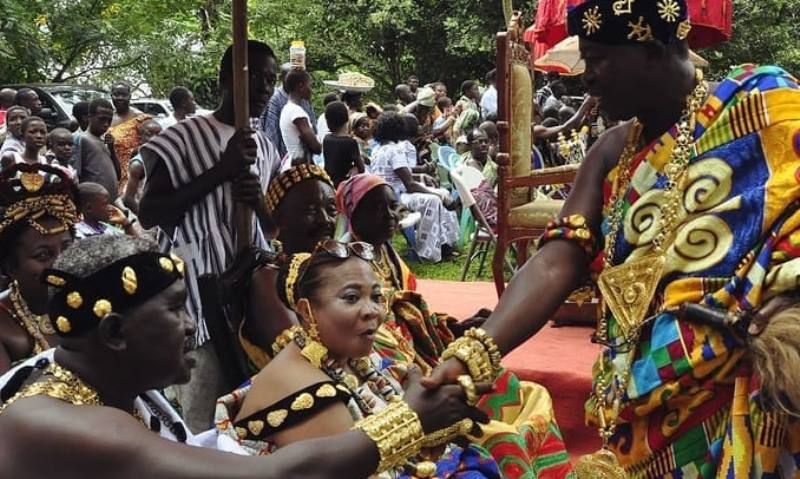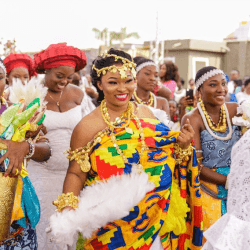Kwahu refers to an area and group of people that live in Ghana and are part of the Twi-speaking Akan group.
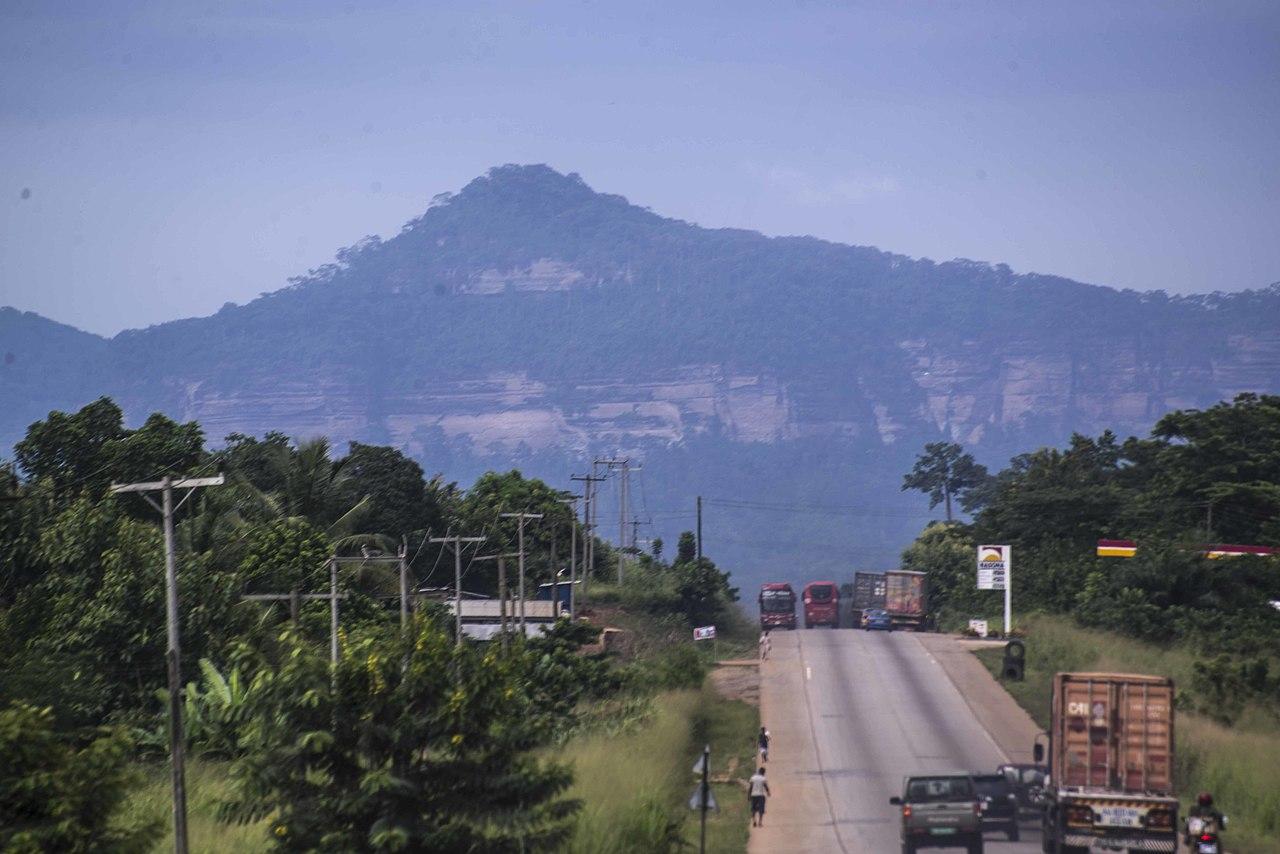
The Kwahu, an Akan people, live on the eastern border of Ashanti in Ghana
Kwahu lies in the Eastern Region of Ghana, on the west shore of Lake Volta.
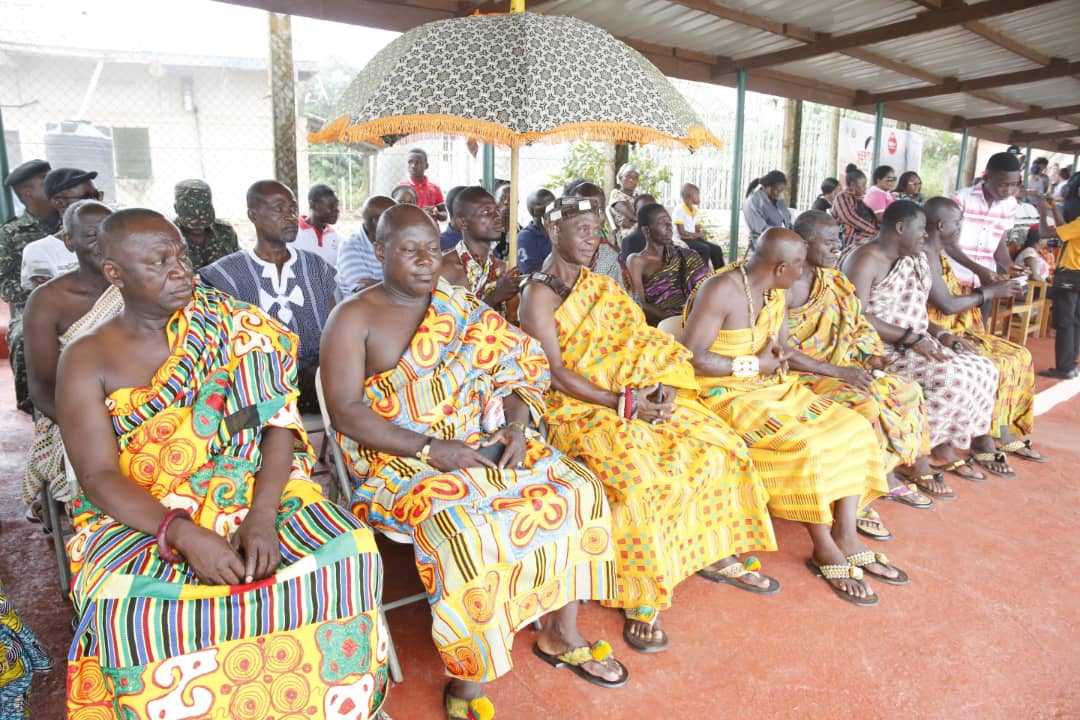
The Kwahus share the Eastern Region with their fellow Akans: the Akyem and Akuapem, as well as the Adangbe-Krobos.
The area has been dubbed Asaase Aban, or the Natural Fortress, in view of its position as the highest habitable elevation in the country.
A significant migrant population from the Northern and Volta Regions and some indigenous Guans from the bordering Oti and Brong East Regions live in the Afram Plains area.
They work as traders, farm-hands, fisherfolk, and caretakers in the fertile waterfront ‘melting pot’.
The name Kwahu, according to historians, derives from its myths of origin, “The slave (akoa) died (wu),” which was based on an ancient prophecy that a slave would die so the wandering tribe of Akan would know where to settle.
This resonates with the etymology of the Ba-wu-le (Baoulé) Akans of the Ivory Coast whose Warrior Queen Awura Poku had to sacrifice her baby in order to cross the Komoe river.
The myth was part of the historical stories of the Agona matriclan, the first paramount lineage of Kwawu, and was later adopted by the Bretuao-Tena matriclan (Twidan) who later replaced them. Other historians trace the name Kwahu to the dangers associated with making the mountainous terrain a habitat as it became known as a destination of no return: go at your own peril or “ko wu” in the Twi language.
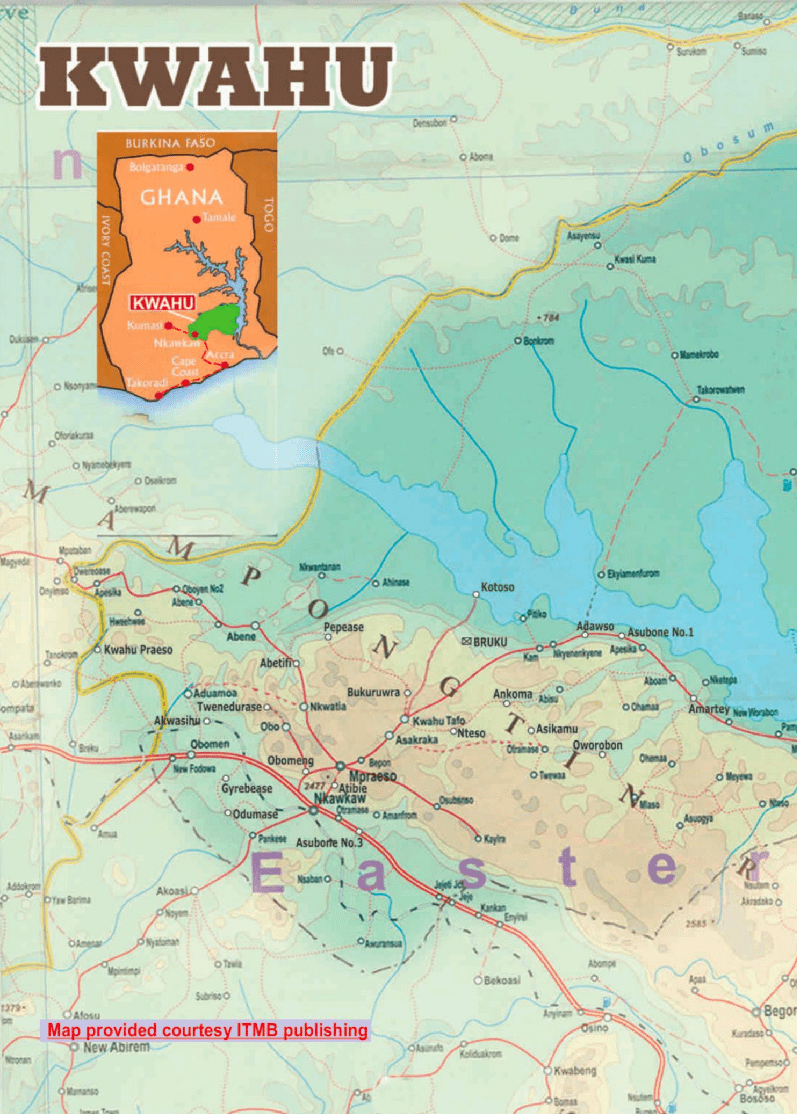
This latter version is thought to have come either from their ancestral people in Mampong who did not support fragmentation or from enemies who perished in trying to take fighting to the Kwahu in the treacherous mountains.
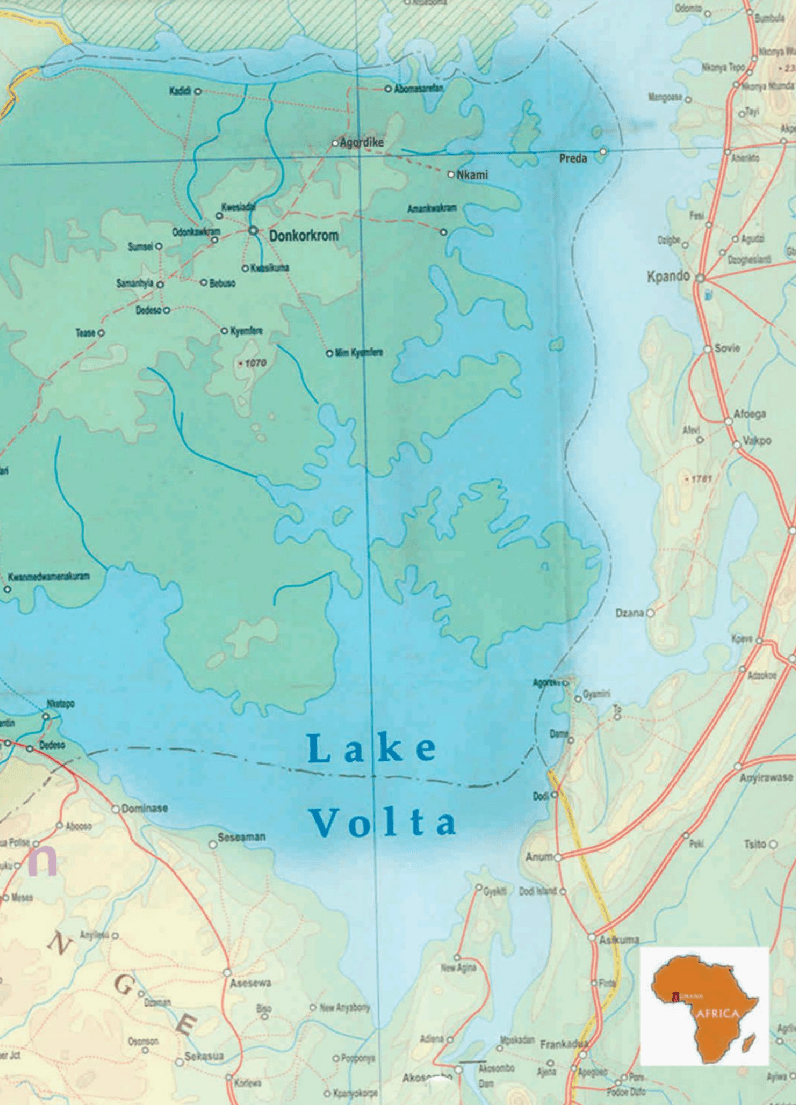
The Anii or Basila tribe formerly known as Oji, claims that the word Kwahu has nothing to do with the slave myths of the Akans. It was a group of Anii who migrated from Mampong to Kwahu during the civil war between Akans and Atarua Apinaman Kotoko Kingdom.
After arriving in Kwahu, they fortified their new settlement by allowing some guards to stay alert within the mountain passes, and in case they see any intruders, they should blow their horn to alert the Anii and Guan settlers.
When one of the guards saw a strange movement in the bush he came to inform the leader about it and they told him in the indigenous language of the Anii “Kwahu-Kaw-hu, or Kua-hu” meaning “go back and blow”. And the guards replied after blowing the horn saying, Nkawhu, meaning “I went back and blew”. Thus, Kwahu means go back and blow, and not slave theory; they claim that it has nothing to do with the slave theory.
